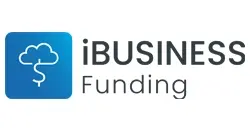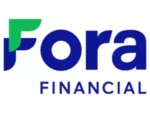What is a Prepayment Penalty on a Business Loan?
Paying off debt early is usually a smart move. But when you repay a business loan before the term ends, your lender doesn’t earn as much interest as anticipated. While most small business lenders don’t charge prepayment penalties, some will impose these fees to recoup their financial losses.
Here’s what you need to know about business loan prepayment penalties and how to avoid them — plus, learn about several lenders offering business loans with no prepayment fees.
- Prepayment penalties typically cost between 1% and 5% of the remaining loan balance.
- Depending on the lender, prepayment fees may be charged at the end of the loan term or anytime you pay off a large amount ahead of schedule.
- If your lender charges prepayment penalties, details will be included in your business loan agreement.
What is a business loan prepayment penalty?
A prepayment penalty is a fee some lenders charge when you repay your loan ahead of schedule. While prepayment penalties are often seen with mortgages and auto loans, some types of business loans also impose these fees.
The prepayment fee is typically calculated as a percentage of your loan payoff amount. Your final business loan agreement should list all associated costs with repaying your loan early.
Although paying off debt early can help you save money, you could end up paying hundreds or thousands in prepayment fees, depending on your lender.
Lenders typically make their profit by collecting interest from borrowers. A prepayment penalty ensures the lender will profit from the loan even if the borrower doesn’t pay full interest.
For example, if you were to repay your loan six months ahead of schedule, the lender would lose six months of interest income — but it could recoup some of this loss by imposing a prepayment penalty. In some cases, the prepayment fee drops as you get closer to your payoff date.
Types of business loans with prepayment penalties
Although it’s fairly uncommon for small business loans to have a prepayment penalty clause, SBA business loans and commercial real estate loans often come with such fees.
SBA 7(a) loans
The SBA 7(a) loan is the SBA’s most popular loan, typically used for general business expenses. This SBA loan comes with prepayment penalties if your repayment term exceeds 15 years and you voluntarily pay 25% or more of your outstanding balance within the term’s first three years.
The fee changes based on timing:
- 1st year: 5% of the amount of the prepayment
- 2nd year: 3% of the amount of the prepayment
- 3rd year: 1% of the amount of the prepayment
SBA 504 loans
SBA 504 loans are commonly used for the expansion or purchase of commercial real estate or as a business equipment loan. These loans have prepayment penalties that decline throughout the first half of the loan term (which can be 10, 20 or 25 years).
The early payoff fee depends on your loan’s outstanding balance and interest rate. After the first year, the early payoff fee decreases by 10% or 20% per year, depending on your loan term.
For example, if your interest rate on a 25-year loan is 6.50% and you pay off your loan within the first year, you’ll be expected to pay a 6.50% prepayment penalty on your remaining loan balance. If you pay off your loan in the second year, that fee would drop to 5.85%.
Commercial real estate loans
Commercial real estate loans help business owners buy property like storefronts or office space. Traditional commercial real estate loans are similar to home mortgages since the property acts as collateral and you’ll need to make payments on a set schedule.
In some cases, your lender may impose a “lockout” period as a mortgage prepayment penalty. During this period, you can’t prepay any amount of the loan. Once the lockout is over, the prepayment penalty for commercial loans typically begins to decrease over time.
Prepaying commercial real estate loans, such as commercial mortgage-backed securities (CMBS loans), may require a process called defeasance.
Defeasance is when you need to replace the property with another asset as collateral — often government bonds — to release the lien on the current real estate. In some cases, defeasance may only be available once you reach a certain point in your repayment term.
If your loan allows this, you’ll typically have a defeasance clause in your loan agreement spelling out exactly how it works and what type of asset is required.
How prepayment penalties are calculated
Prepayment penalties vary by lender, but here are some common business loan prepayment penalty examples.
- Percentage of loan balance: Some lenders charge a percentage, like 1% to 5%, of the remaining loan balance if you repay the debt early or within the first few years. For example, if the prepayment penalty is 4% and you pay off a $100,000 balance, you could owe $4,000.
- Flat fee: Your loan contract could have a flat-rate prepayment fee to help the lender recoup any losses. For example, you might need to pay six months’ interest or a flat $1,000 when you repay your debt early.
- Sliding scale: As with the SBA 7(a) loan above, the prepayment fee starts high and drops a bit every year. Some will cap at 1%, while others will drop to 0% after a certain time.
While some lenders only impose prepayment penalties after the loan balance has been paid in full, others may charge a prepayment penalty anytime you pay down a large portion of your loan ahead of schedule. To understand any prepayment penalties that may apply, check your business loan agreement or contact your lender directly.
Business loans with no prepayment penalty
Many alternative lenders offer business loans and business lines of credit with no prepayment penalties. While these loans typically have more lenient borrower requirements and faster funding times than traditional bank or SBA loans, they may come with higher business loan interest rates and less flexible terms.
Here are a few top online lenders offering business loans with no prepayment penalties.
Methodology
For this list of business loans with no prepayment penalty, we selected lenders offering loan products with no prepayment penalties or fees. In addition, we considered application eligibility, time to funding, interest rates and overall loan costs in creating this list.
How to deal with prepayment penalties on a business loan
First, when you’re applying for a business loan, check if your business loan contract has a prepayment penalty — unfortunately, you can’t escape a prepayment clause once you’ve signed the loan agreement. If you haven’t signed the contract, ask the lender about alternative business loan products without prepayment fees.
For contracts with a prepayment clause, talk to your lender so you understand what triggers the penalty and how to avoid it. Often it’s just a matter of waiting another year or two before you can repay the debt without a prepayment fee.
If you’re determined to pay off your loan early, calculate how much you’ll save in interest. The overall savings could be worth it, even with the loan prepayment penalty.
Frequently asked questions
In general, the earlier you pay off your loan, the more you’ll save in interest. However, if your lender charges prepayment penalties and you pay off your loan early, you could be repaying more than if you’d stuck to the original term.
Be sure to calculate potential savings before proceeding with an early payoff, considering any prepayment penalties.
If you’re unsure if your loan has a prepayment penalty clause, ask your lender — the law requires lenders to disclose these terms. Your loan contract should have a section that covers any applicable prepayment penalties.
While paying off debt is generally a good thing, your credit score could take a temporary hit from it. Debt payoff affects your credit score, as factors like credit mix, payment history and credit utilization help determine your credit score.
However, this negative impact doesn’t last long and your score will hopefully bounce back in due time. In the meantime, follow these steps to boost your credit score after repaying debt.
If your prepayment penalty is because of an early business loan payoff and nothing else, you could potentially claim the fee and any applicable business loan interest as a small business tax deduction. That said, tax laws can be complex, so it’s recommended to consult a tax professional to discuss your options.
Compare business loan offers
Recommended Articles








